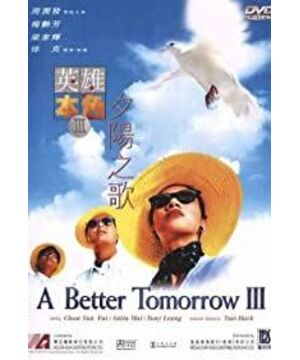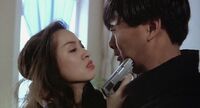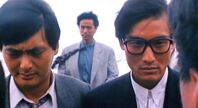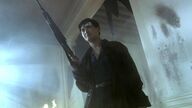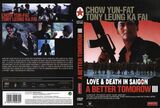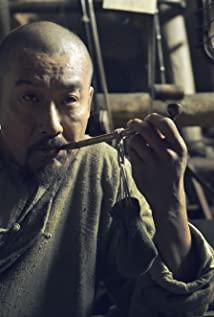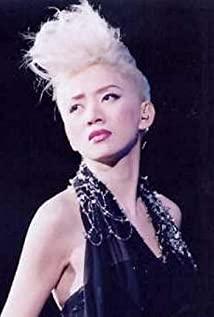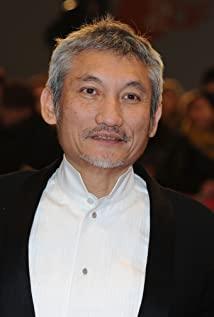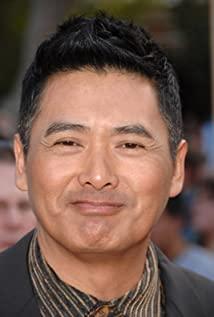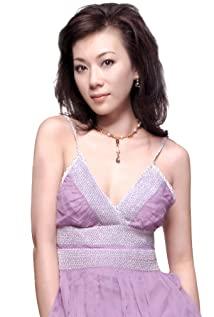I've been making up old films since I didn't know when I fell in love with Hong Kong films, and I haven't watched the very classic "True Colors of Heroes" series until now, so I habitually started making up from the first one, and I've made up for this. Song of the Sunset. At the beginning, I read the introduction and already knew that this Song of the Sunset did not continue under the framework of the first two parts. Some people in the barrage said that this can be understood as the prequel of the first part, or that it does not happen directly with 12. relationship, as a separate part.
After reading it, I think both of these are fine. In short, as long as it is not regarded as a follow-up to the first two, there is no problem.
For me, the shock of Sunset Song is far more than the first two. My knowledge of Vietnamese history is almost zero, so I have no understanding of the background of the times in the film. As for whether it fits, whether there are any problems, etc., of course, I can't tell; The feeling that everyone can't help themselves in the war-torn era is shocking enough. There are too many details like this: the crowded customs, the security check that can be called robbery, the chaotic streets of Saigon, the wounded in the hospital (especially the close-up of the child), and the eighth day when he finally jumped off the plane and took off his military uniform. After the car of the four of them smashed through the railing, a surging crowd poured into the airport, but the last plane was about to take off, and the door was full of people - most of them were impossible to squeeze in. The shot after the plane took off is also very good, full of chaotic people running at the airport, and soldiers shooting close at hand. What will happen to them next.
It's like when the eighth day jumped off the plane and shouted that he was going to find his parents. He and his parents were separated in the war a long time ago. The hope of finding them should be very slim.
I should have no research or preference for gunplay, and I don't feel that there is any obvious lack of gunplay in this part. I feel that the gunfight scenes in Hong Kong films have always been very good, such as the various dark abandoned houses in this one, as well as the common docks, factories... In short, I generally like the gunfights in such scenes with desolate and chaotic characteristics.
Anita Mui is so beautiful. Very handsome, bright, and the kind of beauty with a strong aura. Especially the shot of the shot, it is so good to see that it cannot be described in words, and I never tire of seeing it. I have to say that Tsui Hark's women have always been very good in both ancient costumes and modern times. I feel that in this kind of action & war film, you can see such a person who is neither a vase nor just added to promote the plot. I can't find any existence at all. Feminine supporting roles are really rare. The feeling Zhou Yingjie gave me can be said to be - she was amazing at first sight, and after watching it until the end of the play, I will never forget her, she is such a powerful and good person.
The characteristics of Mark and Amin are also very distinct. To tell the truth, since watching "Prison" and seeing Chow Yun-fat and Tony Leung Ka Fai, I have been habitually unable to get rid of the impression there hahahaha.
At first glance, He Changqing, who was Saburo, really thought he was Vietnamese... This He Changqing really has the feeling of a big guy who is not amazing but hides deep.
The father-son scene between Ah-min and his father is very touching. In order to avoid the war, Amin tried to persuade his father to return to Hong Kong after untold hardships, but his peaceful life did not last long, and his father died unexpectedly. Amin once said, "I should have listened to my father at that time, it might be better not to come back." This kind of feeling really pricks my heart. Many things are unpredictable, and we can only try to find the optimal solution in front of us, but unfortunately, they are probably all unsolvable. Of course it would not be better to stay in Vietnam, but what happened has already happened, and it would not be better to go back to Hong Kong. The protagonists are like this, and many other people are like this. This is also the meaning that is repeatedly expressed in the movie. In He Changqing's words,
"They don't have a choice."
All episodes are great and just right.
I really like Zhou Yingjie so much, so much.
View more about A Better Tomorrow III: Love and Death in Saigon reviews


